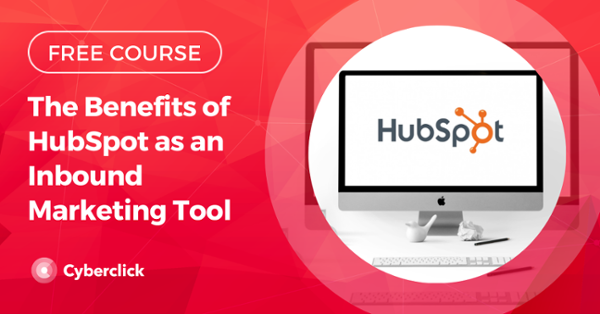Lead management is an essential step between attracting traffic to your brand's channels and generating conversions.
In digital marketing, there is a lot of talk about lead generation strategies. But in this article, we'll talk about how to manage leads to make sure they become customers. Learn about the essential techniques to manage and qualify leads, the types of leads that exist, and best practices.


What Is Lead Management?
Lead management is a stage in the inbound marketing process that consists of a series of coordinated marketing actions aimed at converting leads into customers. To facilitate this process, companies often use specific software solutions, such as CRMs.
Efficient lead management should be based on these 3 factors:
- Providing value to customers: Lead generation strategies are based on offering valuable content to potential customers in exchange for their data. To advance in the lead management process, you must continue to provide value to them. To do this, you should help them with their problems, not sell them your products and services.
- Getting the timing right: According to a Harvard Business Review study, companies that communicate with a potential customer during the first hour of interaction were 7 times more likely to qualify them than those that did so in the following hour. As you can see, it's not just a matter of generating leads, but being able to accompany your leads across the buyer's journey. For this reason, digital marketing automation is essential.
- Personalize marketing messages: No one likes to feel like a number. The best lead management strategy is the one that generates authentic relationships. For this reason, it is essential to offer customers personalized treatments. CRM software can be great for managing communication flows for different segments and needs.
Essential Techniques to Manage and Qualify Marketing Leads
Lead Scoring
Lead scoring is a marketing automation technique that consists of assigning a score to leads based on their correspondence with the buyer persona, the stage of the buying process they are in, and their level of interest in the company.
This score is assigned based on a lead scoring algorithm adapted to the situation and needs of each company. It can be manually created or automated.
Lead Nurturing
Lead nurturing is the process of preparing and accompanying leads throughout the customer journey until they become loyal customers.
Normally, this process is done through a series of workflows or communication flows, in which the lead is sent a series of messages spaced out over time.
During the lead management process, you should create different workflows for your leads depending on their customer profiles and the stage of the buying process they are in. Then, assign the leads to a workflow depending on their lead score.
What Types of Leads Are There?
Correctly classifying contacts is an essential step in lead management. One of the most commonly used methods is to classify them according to their temperature.
- Cold leads: These are users who have become part of your database, for example, by leaving their data in a form in exchange for downloading content. This phase of the buying process is called TOFU or "top of the funnel".
- Marketing Qualified Leads (MQL): These users have gone a step further and have shown repeated interest in the brand's products and services. Therefore, they are considered ready to receive marketing communications from the company. This phase is called MOFU or the "middle of the funnel".
- Sales Qualified Leads (SQL): In this last phase, users are already familiar with your brand and have a clear intention to buy. Therefore, it is time to move them from the marketing team to the sales team and close the conversion. This is the BOFU or "bottom of the funnel" phase.
Best Practices for Good Lead Management
Let's take a look at some best practices for effective lead management:
- Align the marketing and sales process. The marketing and sales teams must be aligned throughout the lead management process, from the acquisition of new users to the final conversion. Both teams should be clear on what characteristics a quality lead should have, what channels to use, and what tactics to employ.
- Encourage communication between both teams. To follow a lead smoothly from start to finish, marketing and sales teams must be in constant contact and be able to communicate quickly and accurately. To do this, you should have lead management software suited to your company's needs, establish good communication practices, and hold joint meetings.
- Identify leads with the highest purchase intent. To get the most out of your leads, it is necessary to be able to identify and filter those that are more aligned with your buyer persona and are more likely to convert in the long term. To do this, you should have well-defined lead scoring algorithm and to periodically evaluate its effectiveness.
- Measure the results of lead management. Measurement is one of the pillars of digital marketing since it allows users to know if your actions are working. It is essential to define a series of key performance indicators or KPIs and to monitor them regularly.
- Use lead management software. To reach the optimal level of optimization and personalization, you should have lead management software that allows you to optimize processes such as lead scoring, sending marketing messages, and communicating between marketing and sales departments.
Why should you implement lead management software?
- It helps convert leads into customers. Lead management software helps marketing and sales teams properly follow up on leads, respond quickly to their queries and provide them with the content they need at each stage of the conversion funnel.
- It helps correctly classify leads. With lead management software, you can design and implement complex lead scoring algorithms and automatically classify each lead.
- It makes leads much more visible. Lead management software makes it possible to see all contacts in one place and identify their actions within your brand's channels.
- It helps offer leads what they need. Marketing and sales teams can better understand what each lead needs at any given moment and offer them personalized communication to foster long-term loyalty.
- It avoids duplicating leads. A very common problem in lead management is poorly cleaned databases, with duplicate contacts, inactive contacts, or contacts not interested in the brand. By unifying all data in one place, lead management software helps to maintain a clean database and generate more conversions.
3 Tools to Manage and Qualify Leads
1. HubSpot
HubSpot is a leading inbound marketing solution that includes all the tools you need to capture, qualify, manage, and convert leads from start to finish.
Its different modules include all kinds of functionalities, including marketing automation, advanced analytics, sales management, SEO and much more.
2. Monday
Monday is a lead management tool with a very simple and intuitive design, including flexible automations, dashboards, workflows and different data visualizations. It can be adapted to companies of all sizes.
3. Pipedrive
Pipedrive helps you focus on lead qualification activities and allows you to integrate many other related applications. Thus, your marketing and sales teams can work together and keep track of the entire buying process.
Responsable de la estrategia de contenidos y visibilidad en Cyberclick, con enfoque Allbound y especialización en posicionamiento SEO, GEO y automatización con IA. Gestión avanzada del CRM con HubSpot: base de datos, workflows, lead nurturing, scoring y reporting. Experiencia en marketing digital, comunicación corporativa y periodismo, uniendo estrategia, creatividad y tecnología para captar y convertir leads cualificados.
Responsible for content and brand visibility strategy at Cyberclick, with an Allbound approach and specialization in SEO, GEO (Generative Engine Optimization), and AI-powered automation. Advanced HubSpot CRM management: database segmentation, workflows, lead nurturing, scoring, and reporting. Background in digital marketing, corporate communications, and journalism—combining strategy, creativity, and technology to attract and convert qualified leads.





Leave your comment and join the conversation